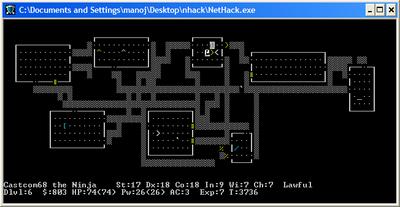- Are you a would-be 'insightful blogger' who has the ideas but just cannot get the right words to express them?
- Are you a would-be 'hot blogger' craving the attention of a thousand raving fans?
- Are you a would-be 'celebrity blogger' who craves publicity but cannot merit even a hyperlink?
- Are you a would-be 'blogger-columnist' aspiring for a multi-thousand dollar contract from WashingtonPost.com but just cannot get noticed?
- Are you a would-be 'blogger-turned-author-turned-screenwriter-turned-director'**?
** Blog Packager will only take you as far as step 1, i.e. blogger. You will have to rely on a "book packager" and possibly a "screenplay packager" and a "directorial packager" to go any further.
So what is the deal?
Simple.
- You, the aspiring blogger, will approach me with your ideas and USD 250 (or Rs. 10,000) as retainer.
- I will hire jobless experts related to your field from wherever they can be found.
- The experts will then add flesh and sinews to your idea skeleton, in the process internalising (and thoroughly obfuscating) the ideas from all the bloggers they can find using Google.
- I will sign a contract with the first party interested in the blog and offer you a percentage of the contract money.
- In case you are too ugly to be photographed, we will supply you with photos to use in the blog.
- You can write about anything under the Sun. However, our market surveys indicate that narratives of the experiences of a non resident Indian teenager are in demand right now.
- If the venture flops, it is solely your fault.
- If the venture fails and nobody hears about it, you can try again by paying an additional retainer fee.
- If anybody alleges intellectual theft you alone will take the blame.
- My name, the company's name or the names of any staff members will not figure on any apologies that you might be required to make.
- Copy editing is forbidden. All materials we choose to show you (which is rare) will have to be used as-is.
********
In case you are wondering, this entry was sparked by an article in the New York Times on the recent 'Opal Mehta' fiasco. The following paragraph from the article caught my attention:
In a statement yesterday afternoon Michael Pietsch, senior vice president and publisher of Little, Brown, said the company would not publish the second book under its contract with Alloy Entertainment, the "book packager" that helped Ms. Viswanathan develop the concept for "Opal" and shape its first four chapters. Alloy, rather than Ms. Viswanathan, signed the contract, believed to be worth $500,000 for two books, with Little, Brown. (Italics added)



